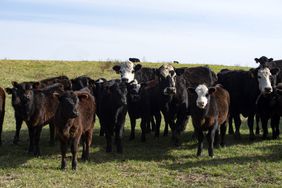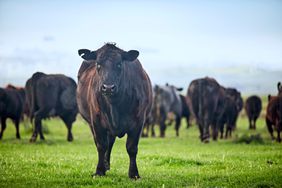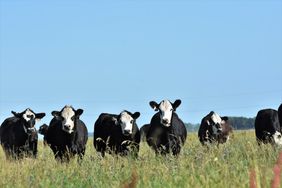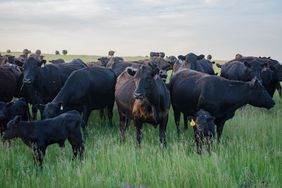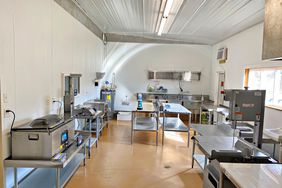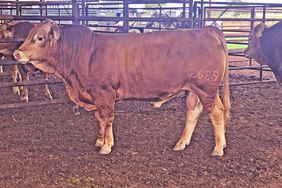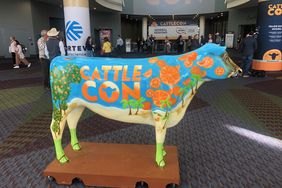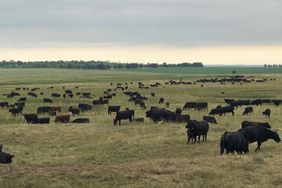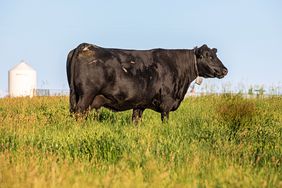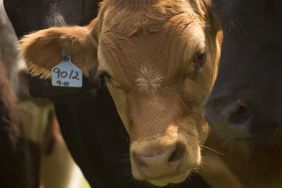:max_bytes(150000):strip_icc()/2EE77274-38C5-4F05-BC2B-6237E8D7D6AB-2000-c28ead84f6e74ff8b0f2e4b44ee038a1.jpg)
At the 2023 Animal AgTech Innovation Summit, five early-stage startups took the stage to give a quickfire pitch of their innovations to investors during the Startup Pitching Session. The featured startups are tackling key challenges facing beef, dairy, meat, and aquaculture production. The Summit, which took place on March 13 in San Francisco, is known for its focus on innovation, animal health, nutrition, and precision farming.
BovIQ
Christian Nielson, a New Mexico cattle rancher, created a mobile app that gives cattle producers data at their fingertips about their cattle and land's performance.
"It's about making your smartphone the ideal instrument for capturing production records on the farm," Nielsen says.
BovIQ is cloud-ready and works offline. The app also offers a digital certificate that can be used at the point of sale for cattle. Nielsen says his clients can sell their cattle at a premium price with the certificate.
With the app, farmers can also understand their operation's carbon capture. The app uses an algebraic benchmark that calculates the weight of the cattle, the cow's dry matter intake of pastured plant material, and how much carbon has returned to the soil.
Hoofprint Biome
This startup could help the cattle and dairy industry reach its net zero climate change goals by reducing methane. Created by Kathryn Polkoff and Scott Collins, two PhD students at North Carolina University, Hoofprint Biome uses three technologies to make an engineered hydrolase enzyme into a probiotic yeast that secretes microbes that eliminate methane in the rumen.
Organicin Scientific
A New England-based biotech company has pioneered bacteriocin, a protein created by bacteria to protect its host against competing bacteria. It can be a powerful weapon in the fight against antibiotic resistance in shrimp production, says the company's CEO, Griffin O' Driscoll.
The protein also is targeted at antimicrobials that inhibit the growth of specific strains of bacteria without harming the crustacean's gut microbiome.
TurboCow
As a precision diagnostics company from Latvia, TurboCow's technology hopes to deliver lab results for udder infections faster to dairy farmers. The company uses an artificial intelligence application and sensor through a smartphone app camera that scans a petri-dish or tube of a milk sample to identify the type of bacteria within the sample.
"We basically can define the name of the bacteria in five minutes," says Anastacia Drebot, Co-Founder & Co-CEO. The technology has an 89% accuracy rate in identifying different types of bacteria.
Volur
By collecting data across the meat processing supply chain, Volur can help corporate and regional meat processors reduce waste and optimize production on the cutting floor to meet consumer demand. With artificial intelligence, the software can tell a processor what products it should produce, when it should be making them and how to optimize inventory levels.
The difference between Volur and its competitors is that the software can do more than schedule or fill orders. With the vast amounts data collected, the software's algorithm provides insights that go beyond simple answers. "Our software not only provides users with the information they need but also explains the reasoning behind its recommendations, empowering businesses to make informed decisions and achieve better outcomes," says Derek Vote, the head of Volur U.S.
